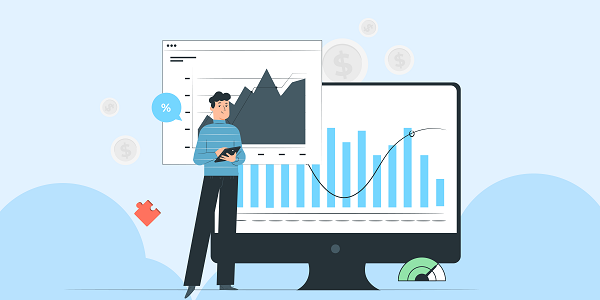Residential Proxies
Allowlisted 200M+ IPs from real ISP. Managed/obtained proxies via dashboard.

Proxies
Residential Proxies
Allowlisted 200M+ IPs from real ISP. Managed/obtained proxies via dashboard.
Residential (Socks5) Proxies
Over 200 million real IPs in 190+ locations,
Unlimited Residential Proxies
Use stable, fast, and furious 700K+ datacenter IPs worldwide.
Static Residential proxies
Long-lasting dedicated proxy, non-rotating residential proxy
Dedicated Datacenter Proxies
Use stable, fast, and furious 700K+ datacenter IPs worldwide.
Mobile Proxies
Dive into a 10M+ ethically-sourced mobile lP pool with 160+ locations and 700+ ASNs.

Web Unblocker
View content as a real user with the help of ABC proxy's dynamic fingerprinting technology.
Proxies
API
Proxy list is generated through an API link and applied to compatible programs after whitelist IP authorization
User+Pass Auth
Create credential freely and use rotating proxies on any device or software without allowlisting IP
Proxy Manager
Manage all proxies using APM interface

Proxies
Residential Proxies
Allowlisted 200M+ IPs from real ISP. Managed/obtained proxies via dashboard.
Starts from
$0.77/ GB
Residential (Socks5) Proxies
Over 200 million real IPs in 190+ locations,
Starts from
$0.045/ IP
Unlimited Residential Proxies
Use stable, fast, and furious 700K+ datacenter IPs worldwide.
Starts from
$79/ Day
Rotating ISP Proxies
ABCProxy's Rotating ISP Proxies guarantee long session time.
Starts from
$0.77/ GB
Static Residential proxies
Long-lasting dedicated proxy, non-rotating residential proxy
Starts from
$5/MONTH
Dedicated Datacenter Proxies
Use stable, fast, and furious 700K+ datacenter IPs worldwide.
Starts from
$4.5/MONTH
Mobile Proxies
Allowlisted 200M+ IPs from real ISP. Managed/obtained proxies via dashboard.
Starts from
$1.2/ GB
Knowledge Base
English
繁體中文
Русский
Indonesia
Português
Español
بالعربية

Proxy servers play a crucial role in improving the speed channel connection to the Internet. In today's digital age, where a fast and reliable internet connection is essential for both personal and professional use, understanding how a proxy server enhances the speed of internet connections can be beneficial. In this blog post, we will explore the functions of a proxy server and how it optimizes the speed channel connection to the Internet.
A proxy server acts as an intermediary between a user's device and the internet. When a user sends a request to access a website or online service, the request first goes through the proxy server before reaching the destination. The proxy server then retrieves the data from the internet on behalf of the user and forwards it back to the user's device. This process helps in masking the user's IP address and enhancing security and privacy online.
One of the key ways a proxy server improves the speed channel connection to the Internet is through caching. When a user accesses a website or downloads content, the proxy server stores a copy of the requested data in its cache. If another user requests the same data, the proxy server can retrieve it from the cache instead of going to the internet to fetch it again. This caching mechanism significantly reduces the time it takes to access frequently requested content, leading to faster internet speeds.
Another benefit of using a proxy server is load balancing. In a network with multiple users accessing the internet simultaneously, a proxy server can distribute the incoming traffic across different servers. By balancing the load in this manner, the proxy server ensures that no single server is overwhelmed with requests, thus optimizing the overall performance and speed of the internet connection.
Proxy servers can also compress data before transmitting it to the user's device. By reducing the size of web pages, images, and other content, the proxy server minimizes the amount of data that needs to be transferred over the internet. This compression technique not only speeds up the loading time of web pages but also helps in conserving bandwidth, especially in networks with limited capacity.
In addition to improving speed, proxy servers enhance internet security by filtering and blocking malicious content. By inspecting incoming and outgoing traffic, proxy servers can identify and block potentially harmful content such as malware, phishing sites, and suspicious downloads. This proactive approach to security not only protects users from online threats but also contributes to a smoother and safer internet browsing experience.
In conclusion, a proxy server plays a vital role in improving the speed channel connection to the Internet through various mechanisms such as caching, load balancing, data compression, and content filtering. By leveraging the capabilities of a proxy server, users can experience faster internet speeds, enhanced security, and optimized performance. Whether for personal use at home or for business purposes in a corporate network, incorporating a proxy server into the internet infrastructure can bring tangible benefits in terms of speed, efficiency, and reliability.
Featured Posts
Popular Products
Residential Proxies
Allowlisted 200M+ IPs from real ISP. Managed/obtained proxies via dashboard.
Residential (Socks5) Proxies
Over 200 million real IPs in 190+ locations,
Unlimited Residential Proxies
Use stable, fast, and furious 700K+ datacenter IPs worldwide.
Rotating ISP Proxies
ABCProxy's Rotating ISP Proxies guarantee long session time.
Residential (Socks5) Proxies
Long-lasting dedicated proxy, non-rotating residential proxy
Dedicated Datacenter Proxies
Use stable, fast, and furious 700K+ datacenter IPs worldwide.
Web Unblocker
View content as a real user with the help of ABC proxy's dynamic fingerprinting technology.
Related articles

How to choose the best Proxy Web Browser download
Explore the core standards of Proxy Web Browser downloads and learn how abcproxy improves browsing security and efficiency through products such as residential proxies and static ISP proxies.

How to configure WhatsApp desktop proxy
This article analyzes the configuration logic of the WhatsApp desktop proxy, combines proxy type selection and operation steps, and introduces how abcproxy improves the user experience through multi-scenario proxy IP services.

How to send a POST request with cURL
This article explains in detail the method and parameter configuration of sending POST requests with cURL, explores the application scenarios of proxy IP services (such as abcproxy) in API debugging and data submission, and provides technical practice references for developers.